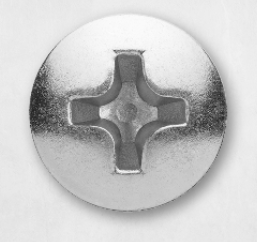Acts 17
|
Acts 17:11:
“Now the Bereans were of more noble character than the Thessalonians, for they received the message with great eagerness and examined the Scriptures every day to see if what Paul said was true. |
Reaffirming messages against the Biblical text is wise.
|
Acts 17:12-21:
12 As a result, many of them believed, as did also a number of prominent Greek women and many Greek men.
13 But when the Jews in Thessalonica learned that Paul was preaching the word of God at Berea, some of them went there too, agitating the crowds and stirring them up.
14 The believers immediately sent Paul to the coast, but Silas and Timothy stayed at Berea.
15 Those who escorted Paul brought him to Athens and then left with instructions for Silas and Timothy to join him as soon as possible.
16 While Paul was waiting for them in Athens, he was greatly distressed to see that the city was full of idols.
17 So he reasoned in the synagogue with both Jews and God-fearing Greeks, as well as in the marketplace day by day with those who happened to be there.
18 A group of Epicurean and Stoic philosophers began to debate with him. Some of them asked, “What is this babbler trying to say?” Others remarked, “He seems to be advocating foreign gods.” They said this because Paul was preaching the good news about Jesus and the resurrection.
19 Then they took him and brought him to a meeting of the Areopagus, where they said to him, “May we know what this new teaching is that you are presenting?
20 You are bringing some strange ideas to our ears, and we would like to know what they mean.”
21 (All the Athenians and the foreigners who lived there spent their time doing nothing but talking about and listening to the latest ideas.)
12 As a result, many of them believed, as did also a number of prominent Greek women and many Greek men.
13 But when the Jews in Thessalonica learned that Paul was preaching the word of God at Berea, some of them went there too, agitating the crowds and stirring them up.
14 The believers immediately sent Paul to the coast, but Silas and Timothy stayed at Berea.
15 Those who escorted Paul brought him to Athens and then left with instructions for Silas and Timothy to join him as soon as possible.
16 While Paul was waiting for them in Athens, he was greatly distressed to see that the city was full of idols.
17 So he reasoned in the synagogue with both Jews and God-fearing Greeks, as well as in the marketplace day by day with those who happened to be there.
18 A group of Epicurean and Stoic philosophers began to debate with him. Some of them asked, “What is this babbler trying to say?” Others remarked, “He seems to be advocating foreign gods.” They said this because Paul was preaching the good news about Jesus and the resurrection.
19 Then they took him and brought him to a meeting of the Areopagus, where they said to him, “May we know what this new teaching is that you are presenting?
20 You are bringing some strange ideas to our ears, and we would like to know what they mean.”
21 (All the Athenians and the foreigners who lived there spent their time doing nothing but talking about and listening to the latest ideas.)
|
Acts 17:24-25:
24 “The God who made the world and everything in it is the Lord of heaven and earth and does not live in temples built by human hands. 25 And he is not served by human hands, as if he needed anything. Rather, he himself gives everyone life and breath and everything else. |
Adrian Warnock: God doesn’t use anybody, so don’t let the Church do so
“He is the God who made the world and everything in it. Since he is Lord of heaven and earth, he doesn’t live in man-made temples, and human hands can’t serve his needs—for he has no needs. He himself gives life and breath to everything, and he satisfies every need. ” (Acts 17:24-25, NLT) 8.14.22 |
|
Acts 17:26-27:
“From one man he made all the nations ... so that they would seek him and perhaps reach out for him and find him” |
Why do we yearn for God? The reason is because God put that yearning within us, and He did it because He wants us to seek Him and come to know Him. God isn’t a vague, impersonal force (like gravity or electricity). God is a person, and He loves us and wants us to seek Him and know Him personally. The Bible says, “From one man he made all the nations ... so that they would seek him and perhaps reach out for him and find him” (Acts 17:26-27).
But how can we know – really know – God? The only way is if He reveals Himself to us, and this is what He has done! He did this by becoming a man: Jesus Christ. -Billy Graham |
|
Acts 17:27:
so that they should seek the Lord, in the hope that they might grope for Him and find Him, though He is not far from each one of us; |
“In pagan religions it is human beings who seek God (Acts 17:27). In every way they attempt to bring God down to themselves and into the dust (Romans 1:23), and by all kinds of methods they try to achieve power over God. But in scripture it is always God who seeks human beings. He creates them in his image and calls them after the fall. He saves Noah, chooses Abraham, gives his laws to Israel. He calls and equips the prophets. He sends his Son and sets apart the apostles. He will one day judge the living and dead. The religions of the nations, on the other hand, teach us to know human beings in their restlessness, misery, and discontent but also in their but also in their noble aspirations and their everlasting needs – human beings both in their poverty and riches, their weakness and strength. The noblest fruit of these religions produces humanism. But Holy Scripture teaches us to know God in his coming to and search for human beings, in his compassion and grace, in his justice and his love.” --Herman Bavinck |
Acts 17: 28-29:
28 ‘For in him we live and move and have our being.’ As some of your own poets have said, ‘We are his offspring.’
29 “Therefore since we are God’s offspring, we should not think that the divine being is like gold or silver or stone—an image made by human design and skill.
28 ‘For in him we live and move and have our being.’ As some of your own poets have said, ‘We are his offspring.’
29 “Therefore since we are God’s offspring, we should not think that the divine being is like gold or silver or stone—an image made by human design and skill.
Acts 17: 32-34:
32 When they heard about the resurrection of the dead, some of them sneered, but others said, “We want to hear you again on this subject.”
33 At that, Paul left the Council.
34 Some of the people became followers of Paul and believed. Among them was Dionysius, a member of the Areopagus, also a woman n
32 When they heard about the resurrection of the dead, some of them sneered, but others said, “We want to hear you again on this subject.”
33 At that, Paul left the Council.
34 Some of the people became followers of Paul and believed. Among them was Dionysius, a member of the Areopagus, also a woman n













